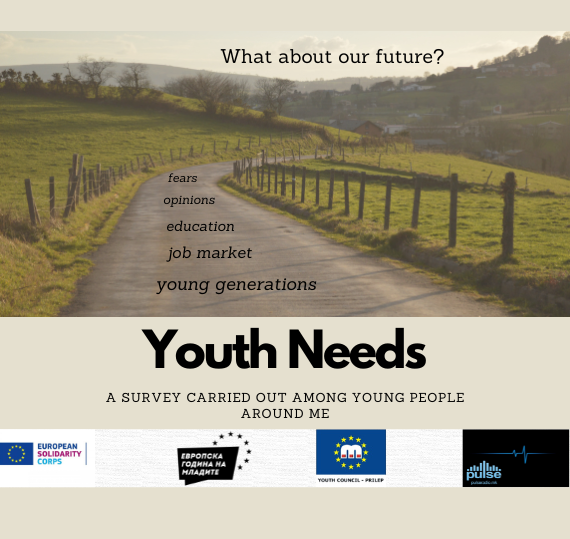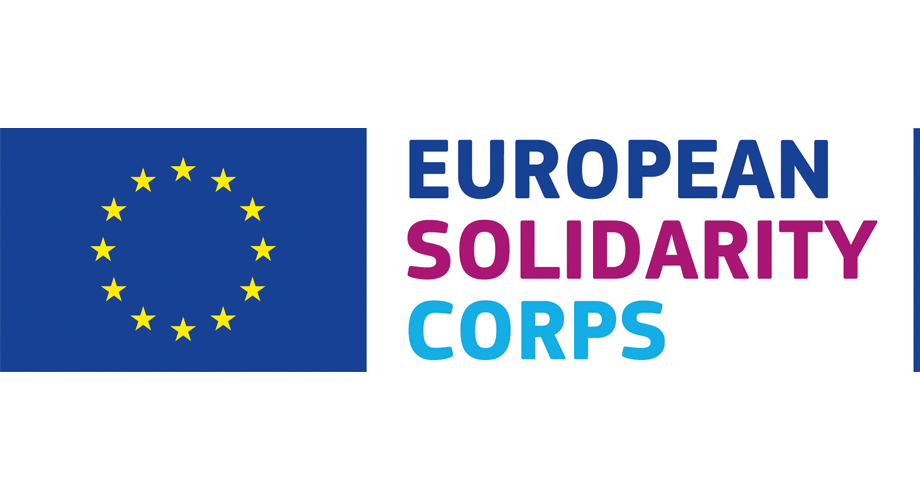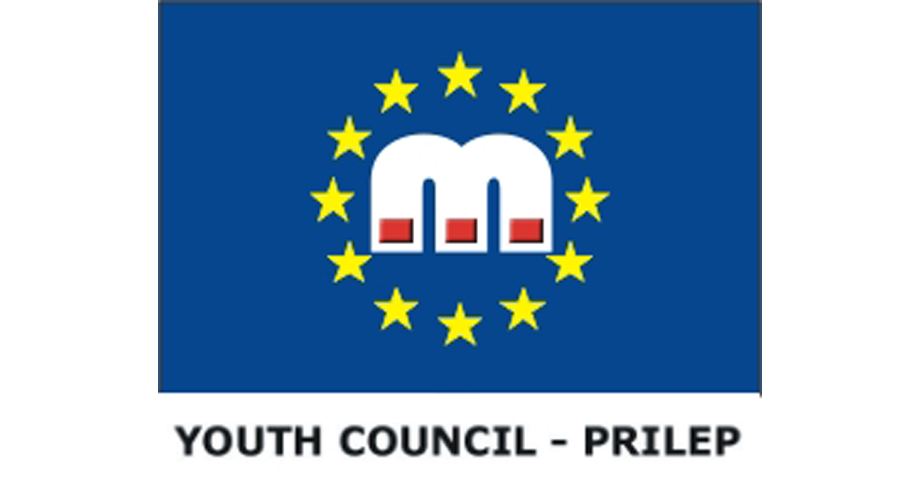Considerations starting from a survey carried out among young people around me
What about the future? What about the young generations? Well, the answers are not always good. This was my impression, based on my experience and on the knowledge I developed in these last years of curiosity and active information. At least, I’ve always tried to understand how the world around me is going. But the impression was confirmed not just by the many talks and conversation I had in these months, but also by the survey I decided to realize before writing this article.
I don’t want to complain about the situation or criticize, because there are not just bad news and most of all I do not have the competencies to build some constructive critic. The aim here, in this article, is to show what I collected around me concerning the needs and thoughts of the young people I know, trying to reach a diversified public for what I could do. That’s why I contacted all my friends from Italy, and the new ones in Prilep and asked to spread the survey to their friends too. I wanted to have many different answers as possible, to read a lot of points of view, and to connect the responses to divergent background.
The questionary was for young people from 18 to 30 years old, so that I could also see which discrepancy there is between the youngest ones who are still studying and could have a more idealistic idea about their future, and the ones who maybe have already started working or are searching for a job right now, so they could have a more practical opinion about their future.
In this specific context I’ll try to outline the general situation revealed by the survey, focusing on a comparison between Italians and Macedonians. The sample of young people taken is very limited, but the point for me is to meditate about some important topics related to the everyday life of my generations and their troubles, fears, hopes regarding their future. In addition, I’m not referring only to the survey, but also to the exchanges of ideas and thoughts I had in the last years with my Italian friends and also in the last two months with the people I’ve met in Prilep.
Nowadays the situation in Italy for young people is not excellent at all: my country has the highest number of “neets” in Europe countries. The term represents the boys and girls from 20 to 34 years old who don’t work at all, don’t study, and neither are involved in other types of training courses. The percentage is 29.4 %, over 12 points the European average. This is just one aspect of the situation, to make an example. Also here in Macedonia it seems that there is a stagnation in the social capital of young people, that last 10 years. And of course the Covid-19 pandemic have caused a lot of damages to the young population in both these countries, making the situation even worse. This is an important debate in Italy, because there were some interventions that our government and the EU commission could do to help, but we, the youth, are really scared that some usual problems like corruption or the politics’ indifference to the young generation, would lead to not use properly those money.
With numerous youth policies, the EU aims to give young people more equal opportunities in education and the job market, and to make sure they can participate fully in all areas of society. This is achieved through various means, for example through the Erasmus+ programme, which fund many different project, like the European Solidarity Corps, that is the one that brought me here in Prilep. Based on what I read and studied in these months about Macedonia, also here there are some legal solutions to regulate youth policies and participation. But, like in Italy, this doesn’t seem to be enough, because of the low functionality of the institutions. Actually, I’m not saying that Italy and Macedonia are the same, I’m really not able to say that. I am just a young person who compare her everyday life and experience here in Prilep, what her new friends say to her and what she can understand, to the debate we are going through right know in Italy and what my Italian friend complain about their situation as young people.
About the survey I would like to focus on the answer of the young people who come from Prilep and the ones who came from Cernusco sul Naviglio (my city), using the two cities as model for the two countries. They are also two similar cities in some way, so the comparison makes more sense. But the reason why I decided to write an article about this topic is for my interest in discovering and understanding how the generation I belong to is living here in Macedonia, so I would like to pay more attention to the opinions of this Macedonian youth and make some personal reflections about it.
Getting to the point, which were the answers to the topics of the survey?
In general, the perception of young people on the future in their country is not in an enviable position, both in Italy and Macedonia. Some of them expressed to have hope despite the possible troubles they could go through, but this group was around the 15 % of the total, so not really a great percentage. The impressive number is that around 60 % of the young people who answered feel a frightened uncertainty about their future: some responses to the question about “which is the first feeling you have about building a future in your country?” were like anxiety, fear, uncertainty, concern… I think that this reflect a global situation, because of all that is happening around the world, and the last decade was not stable at all and the perspective for the young people are changed a lot. Plus, in Italy from the 2008 crisis the economic situation has became more unstable and among the youth policies the changes have not been enough; in Macedonia there was the war in 2001 and the youth protests in 2014-2016. The interesting thing to me, that anyways didn’t surprise me, was the percentage of people who answered to be in some way totally pessimistic about their future in their own country and disillusioned. They are around the 24 % of my survey and most of them is from Prilep.
I understand better now the difference between me and the young people I met here: talking with them it was really interesting how we felt connected in some way because it was like we were all young and afraid about our future, aware to have to deal with a lot of unfair troubles and the political blindness about the young generation; but I’m understanding how here they seems really disappointed, while me and my friends in Italy have more hope and positivity. This are personal considerations. I already knew that Macedonia is a totally different country confronted to Italy, and I’m not enough informed about their political situation and recent history, even if I’m learning a lot about it. But I wanted to express this reflection that came to my mind in the moment I analyzed the responses, and report the impressive fact.
Something that we have totally in common, is the fact that almost everybody contemplates the possibility to go away to work (94 %). Most of them don’t know if permanently or temporarily, but they are open for both the possibilities. A few of them are considering it permanently, and most of all are Macedonians. Indeed, I know that a lot of young people here in Prilep try to go away and build a life in some other country, for example Germany, and it is also one of the first things that I noticed during my stay here, so to me it wasn’t actually a real surprise, even if it remains a significant information.
Then, I wanted to understand more about the social and cultural life, to see if I could find the same interests and needs for the everyday life that me and my friends have in Italy. Generally, young people are the same all over the world, so yes, what they need to have an interesting life where they live and to enjoy their everyday lives is almost the same. Of course, the environment is different, so they asked for different things depending on what their city already offered to them. For example, people from my city seem to be satisfied about the cultural activities, even if they demand for something more, and they asked for more music events and social life. But in general, they were not complaining the life in Cernusco sul Naviglio. Young people from Prilep instead have more requests, they ask for more stimulating social life, more cultural investments in the city, live music events, initiatives to help young people…
Another interesting fact is the level of satisfaction for what concern the educational system: there weren’t really bad grades neither high votes for both the Italians and Macedonians systems, so the average evaluation is of a medium level educational system. But they also had to specified if they think that the most of their knowledge comes from the school or the self-education. And most of the young Macedonian people who answered said that is from both or more from self-learning. This is another different fact from my Italian friends, who in most cases answered from the school, or sometimes from both. I think this is interesting because if in Italy young people study a lot at school and start later to learn something on their own (of course it is a generalization), I think that most of the young Macedonian people who have participated to the survey are really active self-learners and try to find stimulations also outside the school.
To come to an end, the youngest generations right know are living a period of uncertainty, and I can confirm this in my experience. Also the oldest one, around 30 years old, seem to complain the situation, in particular for what concern the difficulties to find a job where they have grown up, in their beloved country. This is for both Italians and Macedonians. None of them seem to hate their country at all, they respect it and love the local environment. In my city, Cernusco, people would like to stay; in Prilep, people are really disappointed about the situation, they seem disillusioned or angry, and just want to go away, but they don’t want to regret Prilep at all and some of them also express the desire to try to remain here to contribute to some changes, but admitted also the struggles that this type of choice would mean.
My conclusion is more a personal and deep desire to participate in building our future, bringing attention to all my generation. The youth policies should become effectives and the young people should never feel disillusioned. I really believe in what the organizations and the youth councils can do in the local community, but the structure of the society and the governments should be really interested in collaborate with them. I have hope that things will work out, and I would really like to keep going on talking and exchanging with other young people around the world, like I’m doing here in Prilep. This is one of the first thing that young people should be teached to do, so that we can better understand each other, realizing how we are all the same, but with so different background and situations that sometimes we can not believe how difficult can be for some young people to realize themselves in their home environment. I recognize my place as a privileged person, and to compare myself with other young people is making me more aware of the struggles that someone in my generation around the world is facing. I suggest to all the young people to do the same, but also to not give up and try to study, inform and learn to build the future they want for themselves helping others to do the same.
Picture and article by Beatrice Colnaghi




